Manly Life Saving Club celebrates 40 years of women surf lifesavers
Just 40 years ago women were finally allowed to train to be surf lifesavers. Manly Life Saving Club is celebrating these pioneers and those who followed. Read their stories.
Manly
Don't miss out on the headlines from Manly. Followed categories will be added to My News.
It’s hard to imagine that just over 40 years ago, women were not allowed full access to surf clubs.
Women were not permitted to take part in patrols or rescues because it was believed to be “strictly men’s work”.
But then the rules changed and by 1980 women were finally allowed to train for their bronze medallion. But they weren’t always welcomed with open arms by their male colleagues, according to some.
This month Manly Life Saving Club is honouring the women who have volunteered and helped to save lives over the past four decades.
A reunion of members past and present – especially the ladies – will be held on May 16, at the club at South Steyne, where they will be treated to a high tea.
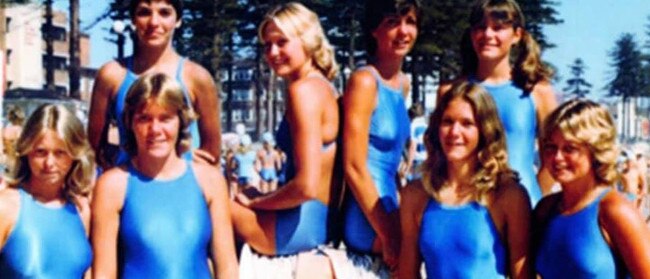
It was due to be held last year on the 40th anniversary, but it was postponed due to COVID.
Among the women who will be attending is Debbie Watson, who captained Australia to water polo gold at Sydney 2000.
She was also a member of Manly LSC’s first-ever female bronze medallion group.
Debbie was 15 in 1980 when it was announced that women could take their bronze medallion.
Manly’s maiden female bronze squad was trained by David Laws and Ron Froggatt, consisting of Ms Watson, Renee Kalajzich, Michele Kalajzich, Traci Butler, Nicole Alagich, Claire Hamilton, Melanie Hamilton, Jackie Smythe.
At the time most didn’t realise the significance of that moment.
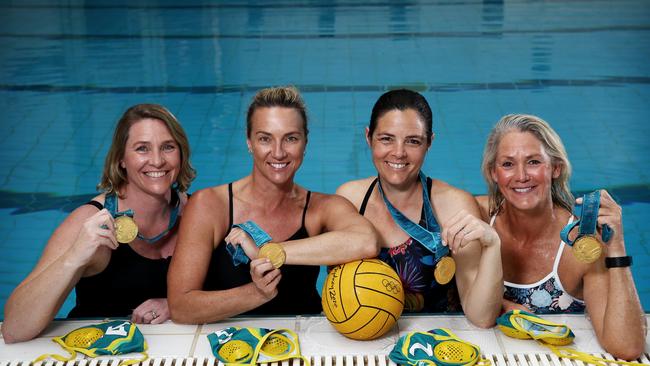
“It was just something that we were going to do because we were old enough – the barriers were broken, not by us, but by people pushing for us to be allowed to do those things,” Ms Watson said.
However, those who had been pushing for women to be allowed to be surf lifesavers had to work hard to make it happen, as less than a decade earlier women were not even allowed into surf clubs.
Here’s a roll call of some of the stars of Manly surf lifesaving:
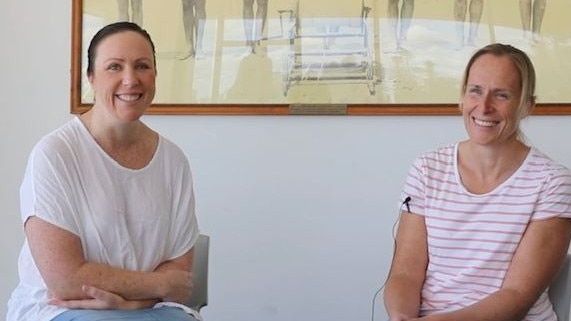
Mel and Georgina Pelly, joined Manly LSC in the early 2000s.
Within a matter of years, the two not only completed a number of certificates but also became qualified trainers.
They say helping train others gives them a “great feel-good factor”.
And they’ve been involved in the club so long that some of the kids they trained in the U14s are now starting to have kids of their own.
The two also went on to participate in a successful Patrol Competition team that won seven straight state titles.
By 2011, Mel had won three Australian Gold medals, three silver and a bronze, as well as 17 state gold medals.
A few years later, Mel would also serve as the second female Club Captain in Manly LSC’s history.
As they grew older and the sisters began to have families of their own, priorities changed and Masters competitions became the perfect way to prolong their involvement.
“I had my first child at 34 and he was on the beach with me doing patrols. When he was six months old, I did my first lifesaving competition with him as a baby. He sat on the beach wearing a Manly hat and stood on the podium with me,” said Georgina.
Denise Elder was one of the first female lifesavers in Australia.
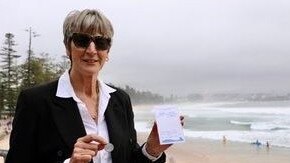
She originally joined her then-local Bronte Surf Life Saving club, representing them in a momentous ironwomen event, before a few years later becoming the first-ever female to sit on the historic organisation’s executive committee.
“It was still very much a boys’ club and I had no aspirations to join,” Ms Elder said. “But when someone said, ‘you could be one of the first woman ever to compete in the ironwoman’s event in the southern hemisphere’, I thought, ‘this is history in the making.’
“So I madly joined the club and got my bronze, my first aid certificate and ARTC. It was a bit of fun and it was a challenge.”
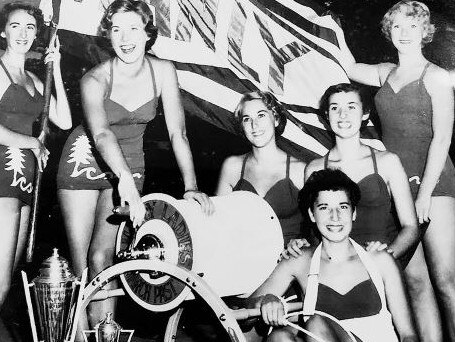
Culturally, Ms Elder believes it took many years for the attitudes of some to change and she would compete against the men because there were no women in the surf club.
“So I would go out and swim with the guys and to begin with they really didn’t accept it,” she said.
In her first ironwoman event, she did okay in the swim, struggled in the surf ski and struggled in the board, and after running up the beach and crossing the line felt unwell.
It was only after visiting the doctor a couple of days later, she found out she was six weeks pregnant.
Ms Elder eventually shifted her competition rights to Manly, which she has represented at State and Aussies competitions in both the opens and master’s categories.
Through this, she has directly witnessed the breaking down of barriers over time.
Ruth Kelly joined Manly Lifesaving Club along with her husband Greg Booker after moving to Manly and renting a home that overlooked the beach.
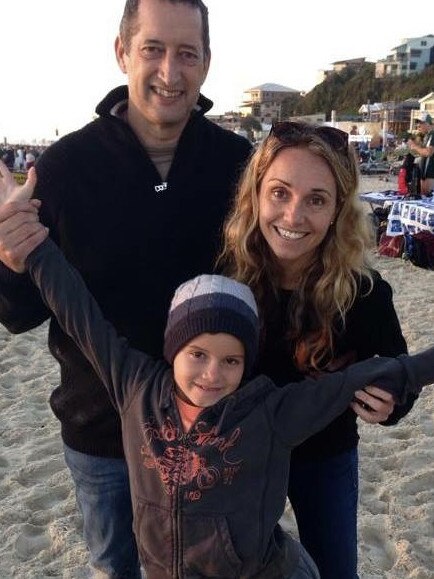
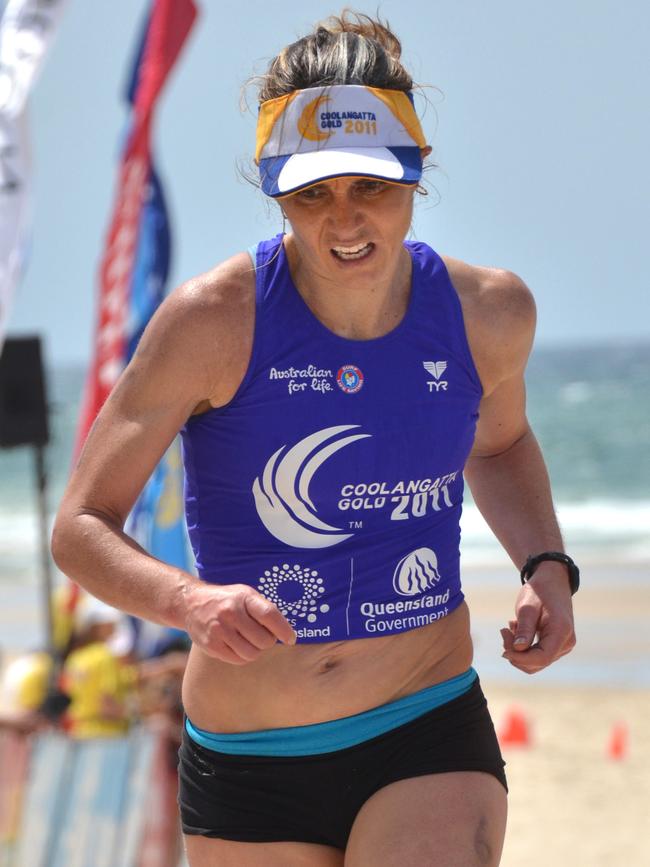
During the mid-1990s, the pair were awarded their bronze medallions and since then have immersed themselves in almost everything the lifesaving movement has to offer.
Ms Kelly has served as Manly’s first-ever female Club Captain, as well as a strong competitor.
“After moving to Manly, we’d look out and see these young kids that were able to swim and board paddle and have a great time,” she says.
“We just kind of went, ‘that’s something that we’d love to be involved in’.
“We just thought it would be a great avenue to meet people, but also learn a few different skills along the way as well.
“We wanted to learn how to ride a board and a surf ski and learn the craft at a much later age than a nipper let’s say.”
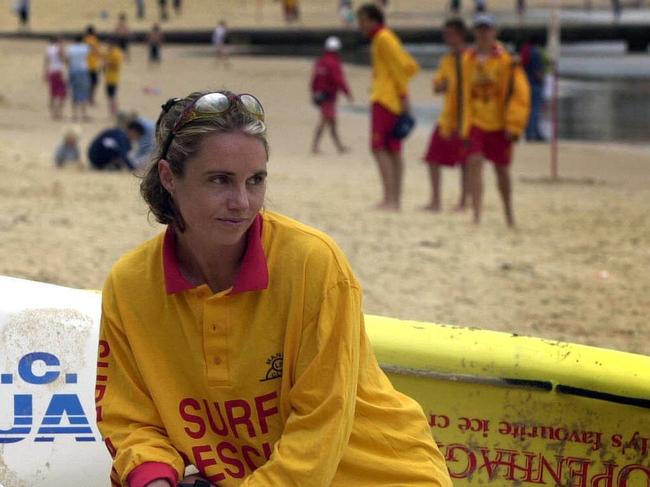
As well as patrolling, the couple oversaw the club’s education program for several years and many of the club’s members have the two of them to thank for teaching them their SRC or bronze medallion.
After putting her hand up to become Club Captain, an organisational position overseeing Manly’s patrolling core, Ruth was proud to discover that she was the first woman in the organisation’s history to serve in the role.




